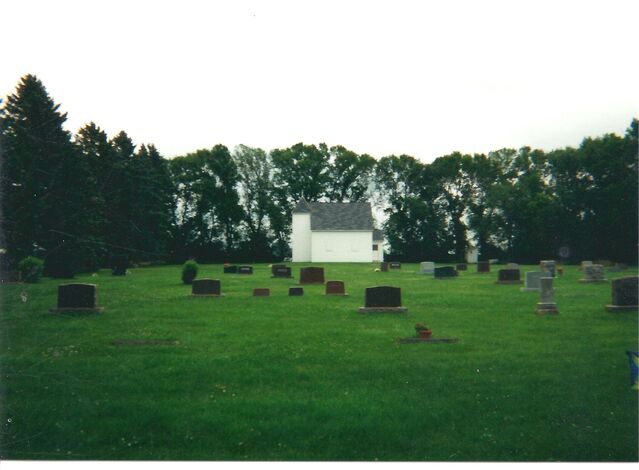Loneliness
Should We Ignore or Embrace Our Mortality?
Those who embrace their mortality often live simpler, wiser lives.
Posted February 6, 2021

I am often so preoccupied with my writing and teaching projects that I don’t always see the obvious changes occurring right in front of me. One of those changes took place about a year ago.
I stepped out of my university office and suddenly realized I was surrounded by all new faces. I looked up and down the hallway for any old, familiar faces from years past—and saw none. A quick survey of the nameplates on the offices in that same hallway revealed that everyone who had joined me at the university many years earlier was gone. I was the last one left from my generation.
After teaching an evening class, I wandered down that same hallway, looking at the new nameplates and remembering my colleagues who once occupied those same offices. I felt like the fictional character Eben Flood in Edwin Arlington Robinson’s poem, “Mr. Flood’s Party,” who had outlived all of the former residents in a New England small town. The loneliness eventually drove him into the woods above town, where he looked down at the homes “Where strangers would have shut the door/ That many friends had opened long ago.” To cope with his loneliness, Eben Flood, whose name is based on the term “ebb and flow of time,” drinks from a jug and talks to an imaginary companion he created to share his loneliness.
I haven’t yet come close to Eben’s lonely attempts to deal with the painful losses in his life and the memories he alone carries into his old age. I have an outside chance of living a long life. My father, who was adopted, learned he had one uncle on his birth mother’s side of the family who lived to be over 100 and another who lived into his mid-90s.
My mother’s side of the family has even more long-term survivors. My Great Grandfather Eric lived to be 100. (Actually, he was a couple of months short of 100, but we give him credit for his valiant attempt to reach that venerable goal.) My Grandma Anna reached the age of 94 and was the oldest resident in that part of Minnesota to have a hip replacement. Four of my mother’s sisters are still alive, and they range in age from early 80s to 102.
Grandma Anna had a simple philosophy: “Always look ahead, not back.” If she had brooded about her own past, she had plenty of reasons to become depressed. She lost three children before she died. She lived a simple life, one for many years without indoor plumbing and other modern conveniences. Yet, on her deathbed one of her daughters described her as “being content with the life she had lived.” She was planning her next birthday party when she passed away.
Grandma Anna’s father (my great grandfather) spent the last years of his long life distributing peppermint candies to children at family get-togethers. He was a very gentle, unassuming man. I learned after his death that he and his wife had built a sod hut on the Minnesota prairie and lived in it for a couple of years before they could build a frame house. He, too, seemed content with a life that included taking in some “stray children” who came into his farmyard to escape from abusive homes. If he ever worried about aging or impending death, he never revealed it to others.
In addition to my personal experiences, I have also read the works of many authors who addressed the challenges of aging and dying. Indeed, confronting the mysteries of human mortality is one of the most common themes in the literature I teach.
On his deathbed, Henry David Thoreau, author of Walden, was reportedly asked by an elderly relative if he had made his peace with God. Thoreau answered, “I didn’t know we had quarreled.” Thoreau was deeply invested in the natural world and the lessons it had taught him about living and dying. To him, the process of dying was a simple matter of taking the next transcendental step into the more universal purpose of life.
In a poem titled “Crossing the Bar,” Alfred Lord Tennyson urged those who loved him not to mourn his passing because, “I hope to see my pilot [God] face to face/ When I have crossed the bar.”
An anticipated meeting with God is of secondary importance to Robert Browning. In a poem titled “Prospice,” he acknowledges death as “the Arch Fear.” Yet, he looks forward to being reunited with his wife Elizabeth Barrett Browning: “Oh thou soul of my soul! I shall clasp thee again,/ And with God be the rest!”
Dylan Thomas is far less accepting of the aging and dying process. In his poem, “Do not go gentle into that good night,” the speaker cites the different human types—“wise men,” “Good men,” “Wild men,” and “Grave men”—who do not give up on their lives without a fight. He implores his father to follow their example and “Rage, rage against the dying of the light.”
Emily Dickinson lost many loved ones to tuberculosis and often witnessed daily burials in a cemetery near her home. Her poems reflect her internal struggles and doubts regarding the issue of human mortality. Yet, in her poem “Death is a Dialogue,” she confidently predicts the soul will be released and become immortal at the moment of death: “The Spirit turns away/ Just laying off for evidence/ An Overcoat of clay.”
Jay Gatsby, in F. Scott Fitzgerald’s novel The Great Gatsby, has a very different view of human mortality. He convinces himself that he can live in a timeless “orgiastic future.” However, Gatsby and other characters in the novel who strive to escape the boundaries of time and become eternally young inevitably live tragic and meaningless lives.
Perhaps Ishmael, in Herman Melville’s novel Moby Dick, provides the most poignant symbol of the need to embrace our mortality if we are to live wisely. After his whaling ship is destroyed by the enraged white whale, Ishmael clings to a wooden coffin until he is eventually saved by a passing ship. His very survival depends on his ability to embrace a symbol of death and human mortality.
There is no single universal message regarding aging and dying that echoes through classical literature. However, literary characters who convince themselves they are immortal often become the most disillusioned of humanity. Conversely, those who embrace their mortality often live simpler, wiser lives.

References
Edwin Arlington Robinson, “Mr. Flood’s Party” (1920)
“Thoreau’s Timely Message,” The Washington Post (May 18, 1979)
Alfred Lord Tennyson, “Crossing the Bar” (1889)
Robert Browning, “Prospice” (1864)
Dylan Thomas, “Do not go gentle into that good night” (1951)
Emily Dickinson, “Death is a Dialogue” (1864?)
F. Scott Fitzgerald, The Great Gatsby (1925)
Herman Melville, Moby Dick (1851)




